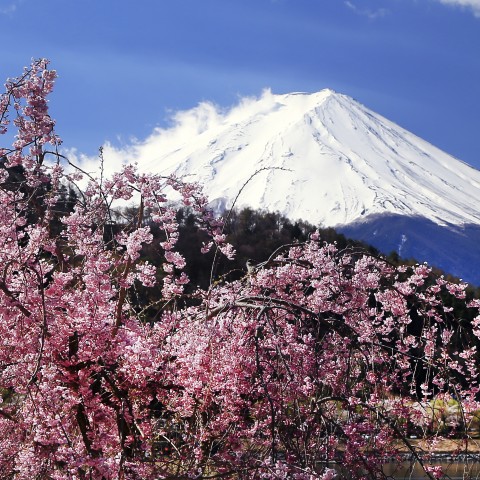The school entrance ceremony in Japan, or Nyūgakushiki in Japanese, is one of the most momentous occasions in a student’s life, and it takes place each year as the cherry blossoms bloom.
In this article, you’ll learn all about this celebratory season and gain some new vocabulary along the way.
Let’s get started!
1. What is the School Entrance Ceremony?
The Japanese school entrance ceremony name is Nyūgakushiki.
Nyūgakushiki is a time of both encouragement and excitement about the coming year for students in every grade, though the Japanese high school entrance ceremony may be the most exciting for new students.
During a school entrance ceremony, Japanese students celebrate their enrollment in a school, and that enrollment is also authorized. A school entrance ceremony, or 入学式 (にゅうがくしき), can take place for enrollment in schools of any education level. Thus, there is a Japanese elementary school entrance ceremony, one for middle school, another for high school, and even enrollment ceremonies for universities and vocational schools.
-
→ Brush up on your vocabulary with our vocab list on Back to School Essentials! (Or are you Too Cool for School?)
2. When are the Entrance Ceremonies?
The school entrance ceremonies typically take place in early April, not long after the graduation ceremonies in late March.
3. A Japanese School Entrance Ceremony
As mentioned, in Japan, school entrance ceremony season takes place after the graduation ceremonies near the end of March. During a graduation ceremony, graduating students are awarded a school certificate; in universities and graduate schools, students receive a diploma. The graduation ceremonies in Japan are very formal; men wear nice suits, while females who are graduating must wear traditional kimono and hakama.
For the school entrance ceremony, Japanese students going into high school wear their brand-new uniforms and participate in the welcoming ceremony. From elementary school to high school, the homeroom teacher calls each new student, who the principal then offers words of encouragement and support. Afterward, a student chosen as a representative makes a pledge concerning their new school life. For sentimental reasons, someone may also take a photograph of the new class together.
Sometimes, there may be a 来賓挨拶 (らいひんあいさつ), or “speech by a guest of honor,” for the ceremony.
-
→ Do you want to learn some Encouraging Phrases in Japanese? JapanesePod101 has you covered!
4. Two Important Songs
Do you know what Japanese students sing at each school entrance ceremony?
There are actually two things they can sing. During a ceremony, there is a time for 校歌斉唱 (こうかせいしょう), or “singing of school song.” Students also sing the 国歌 (こっか), or “national anthem.”
5. Essential Japanese Vocabulary for School Entrance Ceremonies
Are you ready to review some of the vocabulary words from this article? Here’s a list of the most important Japanese words and phrases for the school entrance ceremony season!
- 春 (はる) — “spring”
- 式 (しき) — “ceremony”
- 入学式 (にゅうがくしき) — “school entrance ceremony”
- 学校行事 (がっこう ぎょうじ) — “school event”
- 新入生 (しんにゅうせい) — “new student”
- 国旗 (こっき) — “national flag”
- 国歌 (こっか) — “national anthem”
- 在校生 (ざいこうせい) — “current student”
- 歓迎の言葉 (かんげいのことば) — “words of welcome”
- 来賓挨拶 (らいひんあいさつ) — “speech by a guest of honor”
- 校歌斉唱 (こうかせいしょう) — “singing of school song”
To hear the pronunciation of each word and phrase, and to read them alongside relevant images, be sure to check out our Japanese School Entrance Ceremony vocabulary list!
Final Thoughts
We hope you enjoyed learning about Nyūgakushiki with us, and that you took away some valuable cultural information.
Do you have a special school entrance ceremony in your country? If so, how do you celebrate or participate in it? We look forward to hearing from you in the comments!
If you’re fascinated with Japanese culture and can’t get enough, we recommend that you check out the following pages on JapanesePod101.com:
- Top 5 Things You Need to Know About Japanese Society
- Top 5 Important Dates in Japan
- The Best 10 Japanese Anime to Learn Japanese
- Tanabata: The Star Festival in Japan – Vega and Altair’s Love Story
- Japanese Hand Gestures and Body Language
That should be enough to quench your thirst for Japanese cultural knowledge for a little while, but for the full learning experience and more fun resources, create your free lifetime account today. JapanesePod101.com has tons of learning resources for learners at every level, so there’s something for everyone.
We look forward to having you!













